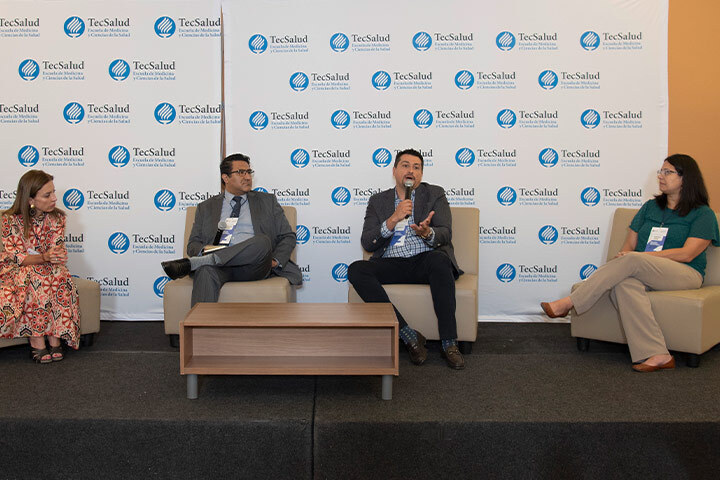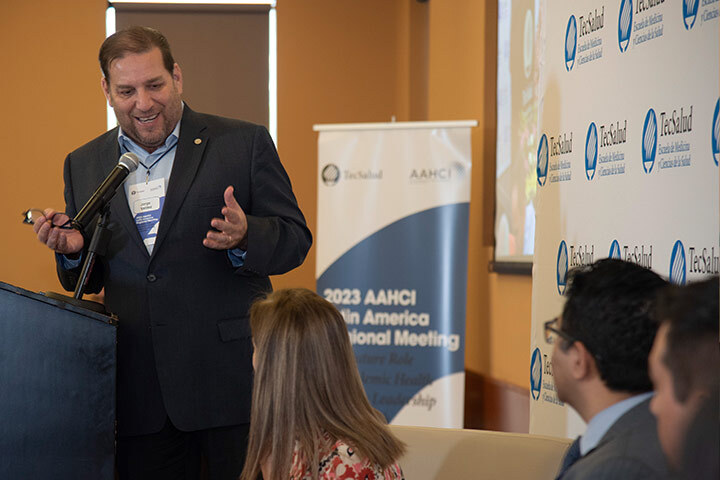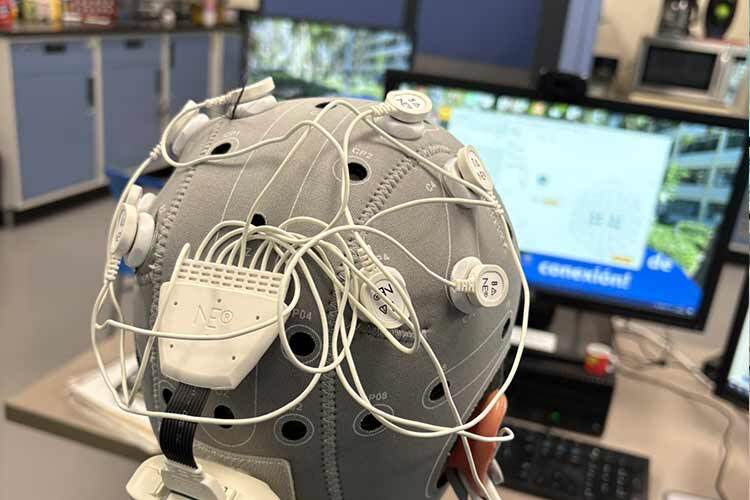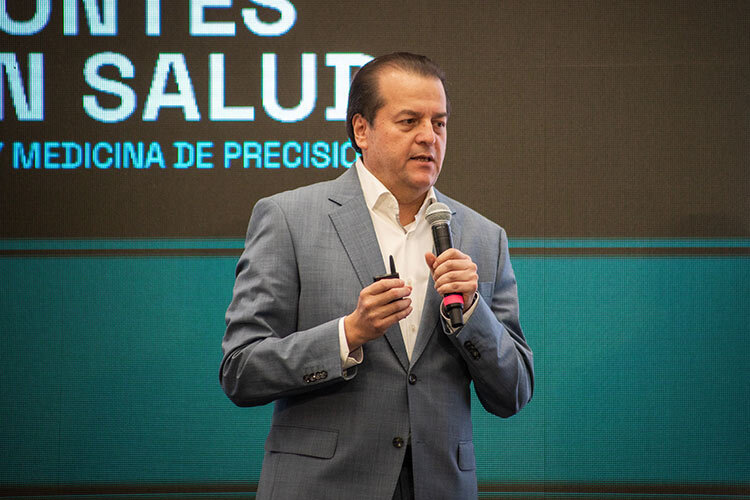Medical experts emphasized the need to establish worldwide alliances, develop specialized credentials, and prioritize collaborative research as ways to solve the issues of academic health centers.
The discussion was held as part of the 2023 AAHCI Latin America Regional Meeting “The Future Role of Academic Health Centers: Leadership and Growth,” which took place on June 22nd and 23rd at the Zambrano Hellion Hospital of TecSalud, Tec de Monterrey’s healthcare system.
Participating on the panel were Natalia Mejía, Dean of the Faculty of Medicine at the University of the Andes, Fernando Villegas, Director of Clinical Research at TecSalud, Alejandro Gil, CEO of Puerta de Hierro Hospitals, and Gabriela Valdez, Director of Global Education at the Mel and Enid Zuckerman College of Public Health at the University of Arizona.
During the discussion, the executives highlighted the opportunities available to academic health centers, as well as the challenges that they face, such as a lack of infrastructure and funding for clinical research, among other issues.

Opportunities for academic health centers
Academic health centers, in addition to delivering quality medical treatment, perform an important role in educating healthcare professionals, as well as advancing knowledge and research in medicine.
In terms of opportunities for these centers, the leaders emphasized the importance of building alliances with regional, national, and international institutions to acquire a better understanding of the worldwide context of medicine, strengthen health education, and integrate educational programs with an emphasis on active learning.
One example of this is a partnership between the University of Arizona and institutions in Mexico and Malaysia in areas such as public health and the provision of dual-degree academic programs.
“In six years, students on these programs will be able to obtain a bachelor’s degree in public health as well as their medical degree. I think it is something innovative,” said Gabriela Valdez.
There was also an emphasis on the need to improve students’ education by allowing them to participate in clinical rotations in more specialized areas.
Current and future challenges
The leaders also emphasized the necessity of addressing opportunities such as a lack of infrastructure as well as specific locations for clinical research, proposing investment in resources and continuous education for staff to perform clinical trials effectively.
“One of our current challenges for clinical research is the training of healthcare professionals who engage in research. We are lacking in this area, as most individuals tend to gravitate towards the pharmaceutical industry,” explained Francisco Villegas.
Furthermore, Alejandro Gil noted that each academic health center has its own goal and vision, with some focusing more on clinical, economic, research, or educational aspects. Consequently, the ways for improvement or establishing partnerships would be determined by these considerations.
Natalia Meja additionally mentioned that external variables, both regional and global in nature, raise additional obstacles such as managing the mental health of students and medical professionals, particularly in the aftermath of the pandemic’s tremendous pressures.
Another regional problem is each country’s sociopolitical situation, including conflicts and rallies, as Natalia Mejía explained in the case of Colombia, which have impacted numerous sectors of society, including the medical area.
The speakers also highlighted the importance of updating medical curricula to respond to changes and demands from society, as well as advances in technology and the changing landscape of diseases and disorders.
Among other topics, Artificial Intelligence, health management, and patient-centered care were mentioned as essential components of future medical education, as were attitudes such as effective communication, empathy, and the ability to work in interdisciplinary teams and adapt to changing environments.


















